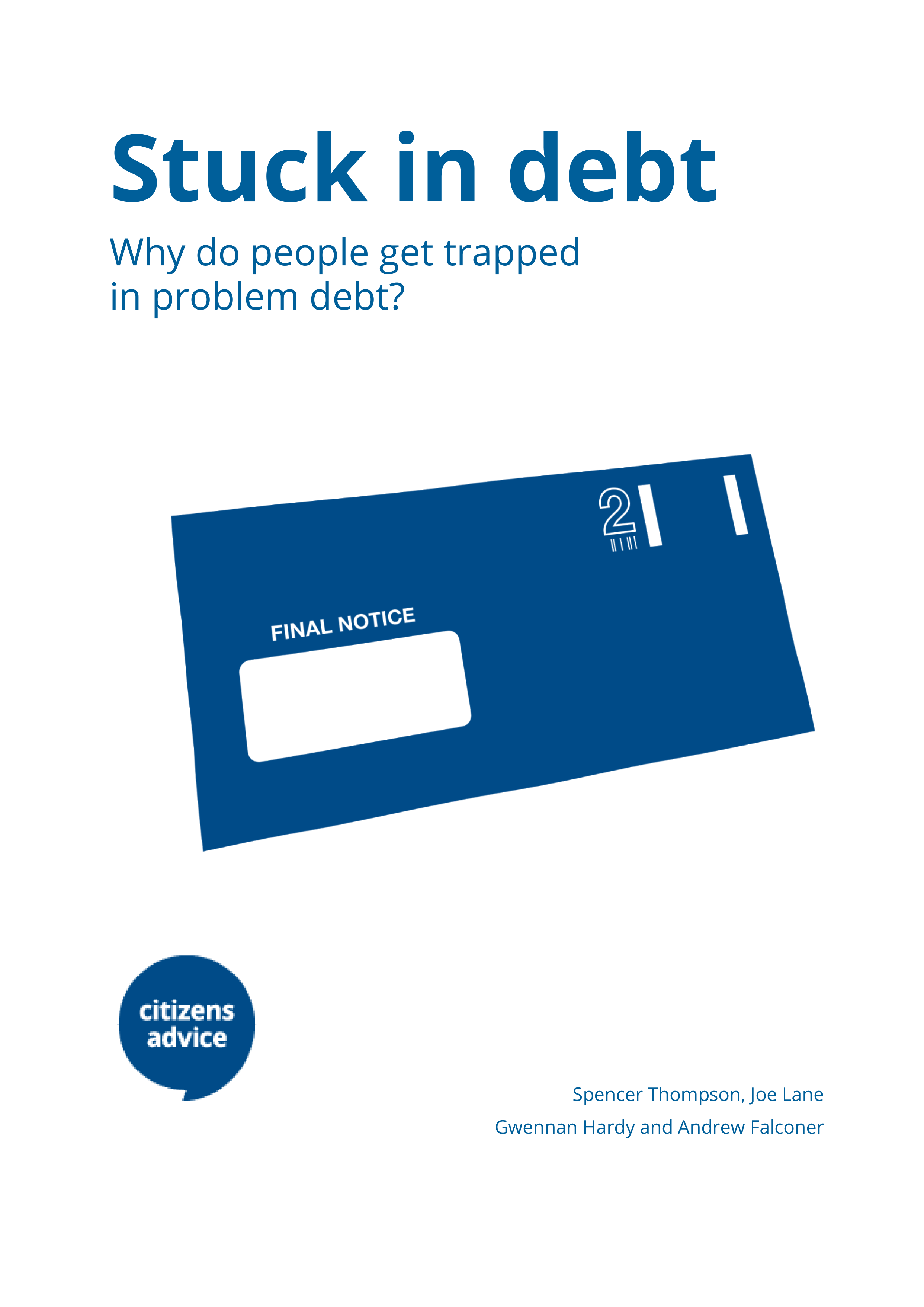Stuck in Debt
Ten years after the first signs of the financial crisis emerged, people’s finances are again stretched. Prices are rising faster than incomes, the savings ratio is at a record low, and consumer borrowing is growing at its fastest rate since before the financial crisis. Borrowing itself isn’t a problem - however it becomes one when people take on debts that they can’t afford to repay. Last year, Citizens Advice helped 350,000 people who were struggling to afford their debts. Our new report, Stuck in Debt 1.49 MB , highlights the extent of problem debt and its underlying causes. An infographic summary 1.25 MB of our report is also available.

For large numbers of people, struggling with debt is a short-term situation, driven by a temporary loss of income, a major life event or an unexpected cost. However, for a significant minority, it is a situation they find difficult to escape. Of the 2.94 million households who were struggling with debt in 2015, 1.37 million (47%) were still struggling with debt over a year later.
People get stuck in debt for a wide range of reasons. One reason is the use of credit cards, which makes it more likely a person will remain in problem debt. Unlike most forms of borrowing, credit cards don’t have a repayment schedule and so allow borrowing to go on indefinitely. Second, people in problem debt enter into a debt-spiral - where they borrow more despite struggling to afford their debts. People who are struggling to repay their debt are just as likely as those who aren’t struggling to borrow more - on average taking on an extra £1,506 over two years.
Lenders, the Financial Conduct Authority, and the government have a crucial role in helping people stay on top of their debts and getting their finances back on track when they fall into difficulties. To stop the current level of consumer lending pushing people into long-term problem debt, people need help to stay on top of their finances.
Our report makes a number of recommendations:
Credit cards should not trap people in debt. Lenders shouldn’t be allowed to increase a credit limit without a customer’s permission and should offer forbearance to customers stuck in problem debt.
Lenders should scrap unarranged overdraft fees. High fees push people further into debt.
Money advice should be provided at key moments in people’s lives. More people would get help if it was offered to them.
People should have a clear route out of debt. Debt management plans should be legally enforceable